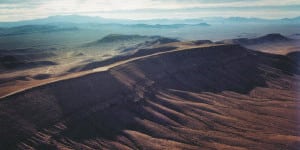
RadWaste Monitor Vol. 10 No. 32
Visit Archives | Return to Issue PDF
Visit Archives | Return to Issue PDF
RadWaste & Materials Monitor
Article 1 of 9
August 25, 2017
Follow Science, Law on Yucca Mountain: Nye County Chairman

Where many leaders in Nevada see only risk when it comes to the long-planned Yucca Mountain nuclear waste repository, Nye County Board of Commissioners Chairman Dan Schinhofen sees opportunity.
Nye County is the poorest county in Nevada, with a median income more…
Partner Content